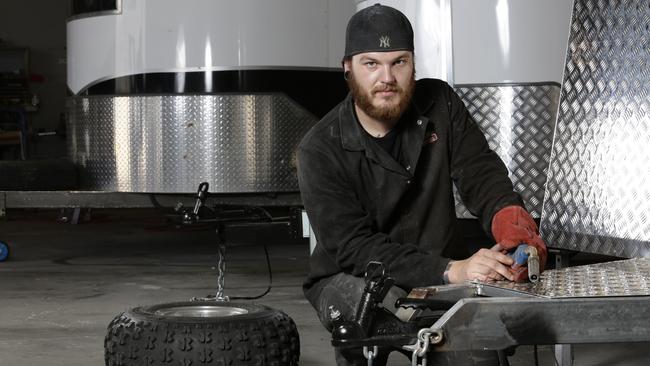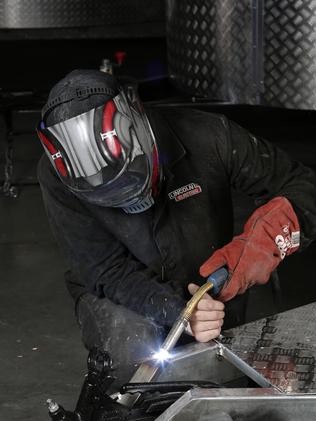Creating a personal identity for your business may also impose barriers when it’s time to sell
THE most natural thing when starting a business is to name it after yourself. That way customers know who they are dealing with. But there’s a problem.

THE most natural thing when starting a business is to name it after yourself. That way customers know who they are dealing with. But the problem for many small businesses — businesses that rely on the reputation of one person — is they are very difficult to sell in the future, unless the key-person remains.
And even though many of our most famous brands are named after families (Myer, David Jones, Coles) I think it is easier long term to sell a business if it is more generally named at the outset.
For years Dick Smith has seen his image and name on stores that he founded in 1968 and sold to Woolworths in 1982 — 34 years ago. Though eventually he used his name to create the Dick Smith food range, for most, it is difficult to recreate the goodwill of your own name.
If you are fortunate enough to build a business, then get a chance to sell it, the legal conditions will be onerous — and must be considered seriously. One of those that must be watched most carefully is the non-compete clause; for this can be an unexpected straitjacket for many years to come.
If you sell, and you are not continuing in the business, the last thing the buyer will want is you capitalising on your goodwill and reputation and opening up a new shop around the corner.
For the buyer of the business, there are three key areas that need to be protected from the outgoing owners: customers, staff and suppliers. Some non-compete clauses may stipulate the seller is not able to open a new business within a certain distance of the existing operation. A common clause is that outgoing management must not approach key clients or staff to join a new operation. But this is often disputed because of the ability of a customer or key staff to make the approach. For this reason, non-compete clauses often appear exceedingly onerous on the seller.
But a seller of a business does not want to be prevented from ever working or setting up any form of business again — unless the sale-price is exceptional. To agree to such a blanket condition on the sale might deprive you of income or opportunity.
This is especially true if the seller wishes to establish a new business in a different field. The problem is often definition, because the natural tendency of any businessperson to drift back into the area of their expertise.
Legal advice is the answer to the non-compete clause. But even with that advice, balancing the price being paid and the non-compete clause is one of the clinch-points in any sale.
A FAMILY BRAND TO BE PROUD OF

LES and Mitchell Tuza make horse floats and they are acknowledged leaders in their field. The curious thing is that their major competitor is Tuza Horse Floats — their old company and the biggest manufacturer in the country.
In 1965, Mitchell Tuza’s grandparents set up an engineering business. One day a customer asked if they could make a horse float. The ingenious Tuzas took on the challenge and a whole new business was created.

In the 1990s, their son Les took the business over and like so many other engineering businesses, if they had a problem they invented a tool and solved it themselves. Then, in 2005, Les decided on a big change in direction.
He sold the business — including the family name. He took his family to China to learn about its manufacturing processes with the aim of creating lower cost horse floats that could be exported to the world. In this way he was not competing with the family business in Australia.
In time he was joined by Mitchell but their frustration with manufacturing in China was about the quality control of the manufacturing.
“We had big plans in China but we couldn’t stay in the factory 24 hours a day to monitor the quality,” Mitchell says.
In 2013, after almost six years, they came back to Australia but this time they decided upon boutique-style work. They improved their designs based on travels to the US and increasingly sought lighter-weight materials to make the movement of very expensive horseflesh easier and cheaper.
“We are in the stone age compared to America — they are so far ahead of us in terms of attention to detail, manufacturing and technology,” Mitchell says.
Initially the new business, Haultek, was making one float a month but over time it took off. Now the father and son business is supplying more than 10 trailers a month and has found a new niche in producing trailers and bodies for motor racing teams as well.




